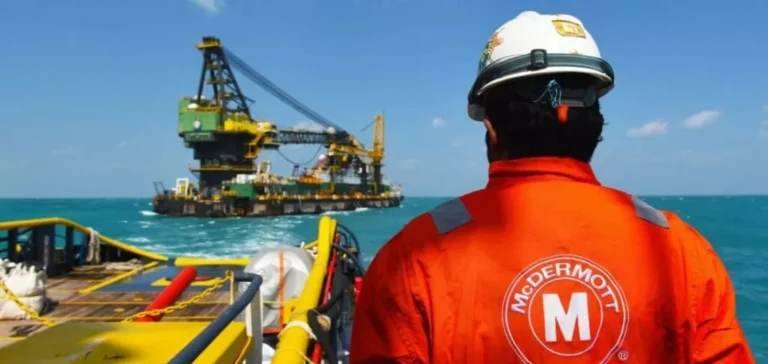US-based McDermott, a company specialised in energy infrastructure, has signed a memorandum of understanding with Namibia’s Petroleum Training and Education Fund (PETROFUND). The collaboration aims to implement academic and industrial training programmes to support the development of the country’s upstream oil and gas sector.
Building local capacity for offshore operations
The agreement will provide Namibian students, job seekers and service providers with access to training aligned with international standards. These programmes include modules in engineering, fabrication, operations and project management. The objective is to prepare a skilled local workforce to meet the growing demands of the country’s offshore industry.
According to Mahesh Swaminathan, Senior Vice President for Subsea and Floating Facilities at McDermott, the initiative reflects the company’s commitment to “developing local content and building a sustainable oil and gas workforce in Namibia.”
Strategic knowledge transfer
PETROFUND, the national fund dedicated to education and training in the petroleum sector, is coordinating capacity-building efforts in the country. Its Chief Executive Officer, Nillian Mulemi, stated that the partnership would enable the transfer of international technical best practices to local talent, thereby strengthening the role of Namibian professionals across the oil sector value chain.
The development of local technical skills is part of Namibia’s broader strategy to establish itself firmly on the African energy map. Recent offshore oil discoveries are boosting the country’s energy growth prospects.
Driving national participation in the energy sector
This initiative supports both Namibia’s resource development ambitions and its long-term economic objectives. By collaborating with international partners, the government aims to ensure that the national workforce plays an active role in future energy projects.
The partnership between McDermott and PETROFUND comes at a pivotal time for Namibia, as offshore discoveries attract major investor interest. The integration of local skills into upcoming projects could become a key economic lever for the country.






















